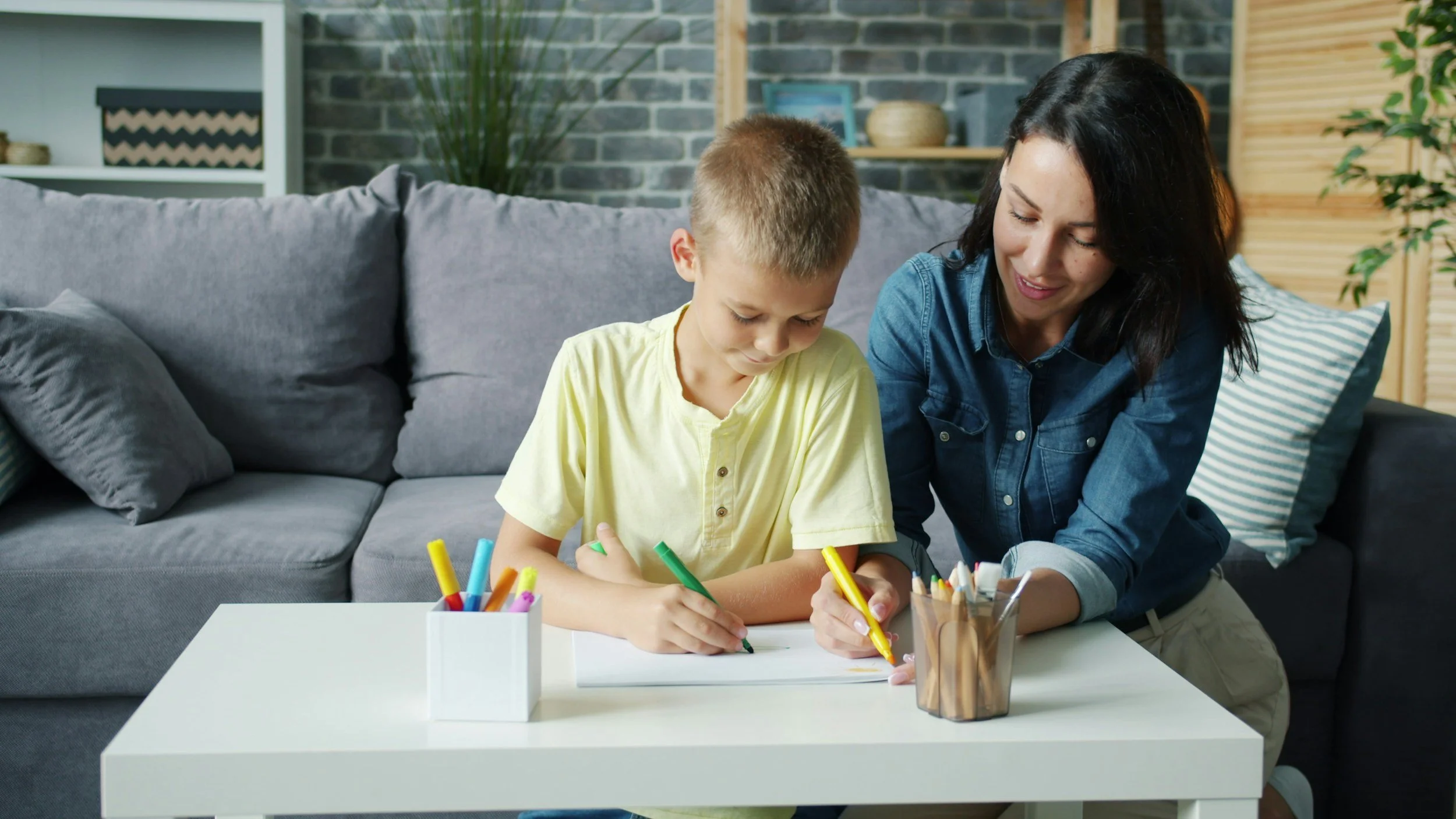
Children/Adolescents Therapy
When should I get a mental health assessment for my child?
Perhaps a family member, doctor, or educator has suggested it. Perhaps you’ve felt worried, angry, or confused by behaviors and emotions that you see from your child. Questions to ask yourself are: how severe is the problem and how long has it been going on? It’s normal for children to go through rough periods of development that often resolve themselves. However, if things aren’t improving, if the problems are getting in the way of daily life, straining relationships, or if you simply have questions about what’s normal, an assessment is a good place to start.
Keep in mind that getting an assessment does not mean treatment will be recommended. Just because a child has experienced a major life event, it’s not necessarily true that they must automatically be enrolled in therapy. Although therapy may be useful in these situations, it’s not always required. Assessments help determine if further professional help is needed.
What to Expect:
During an assessment, we will ask questions about your child’s current symptoms, development, family history, medical history, school performance, social ties, and the child’s ability to participate in the therapeutic process. Assessments include times when: the child and parent/s are seen together, the child is seen alone, the parent/s may be seen alone, and observations and recommendations are discussed. A typical assessment takes two or three visits to complete.
The relationship between you/your child and the therapist is extremely important. The assessment period allows us to gather information and also gives you a chance to decide if your child’s therapist is an appropriate ‘fit’ for your child and family. It’s important to know that not all therapists are the best fit and let us know if that’s the case so we can assist in finding someone who may be a better fit.
It’s natural to feel anxious or vulnerable during an assessment. It can be frightening to reveal deeply personal information to a stranger. People often want to know about the therapist’s background to feel more comfortable, but don’t want to seem disrespectful by asking too many questions. It’s perfectly appropriate to ask about credentials, experience with children or specific issues, and clinical orientation (the theories and approaches used in treatment). It isn’t unusual for younger children to ask personal questions or for adolescents to ask challenging ones. Although we won’t share personal details about our lives, don’t be embarrassed if your child or teenager asks.
If we agree to work together, we will set goals for treatment. These can be very specific, for example, “decrease daily fighting to once a week” or broad “improve self-esteem”. We will recommend a session schedule (weekly is typical) and discuss a time frame for treatment.
How much will you tell me? (Parent)
This is a common and important question. We involve parents by sharing general themes, suggesting helpful ways to interact, and providing progress updates. Parent guidance or family meetings may also be part of therapy, but the level of parent involvement is different for every child. Confidentiality is essential to help a child feel safe in therapy, and therefore, the specifics of what a child does or says will generally remain private. Essentially, we’re asking parents to trust our judgment about sharing what we feel they need to know, while keeping other information private to preserve our relationship with your child.
If we have ANY serious concerns for a child’s safety, parents will know immediately. In addition, we must report any suspected abuse or neglect to the Department of Children & Families.
What is play therapy?
Play is children’s natural form of communication and how they learn about the world, themselves, and others. Emotions can be hard to understand or describe in words and play is a child’s “language”. Play therapy techniques include the sand-tray, therapeutic games, expressive art projects, doll houses/families, dramatic play with costumes, and representational play with symbolic items. If you have questions about a specific technique, please ask us how it applies to your child’s treatment.
How can I prepare my child for their first visit?
You can tell your child you’ve noticed that things have been hard at home, school, with other kids, etc. Children understand going to the pediatrician to keep their bodies healthy, so explain that therapists are people who help kids feel better by figuring out difficult thoughts and emotions. Tell them they will be meeting a therapist named _____ who will try to help them with any thoughts or feelings that are bothering them. Reassure young children that nothing painful (like getting shots) will happen and that you won’t leave them if they are scared. How much notice you give should be based on what your child can understand and their anxiety level. Some children need advanced notice to prepare, while others do better when told the night before the visit because there is less time to worry.
Parents might be tempted to avoid telling an adolescent about a therapy assessment for fear of an angry outburst. Even if this happens, it’s best to be honest about your concerns. Concealing a visit until the last minute can make young adults feel (understandably) ambushed and distrustful of therapy.
Therapy is NOT a punishment. Make it clear to your child that you want to understand what is bothering them and work to make it better. Reassure your child that they don’t bear sole responsibility for the problem or its resolution. Let your child know that you are with them in this process.
